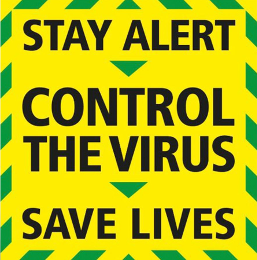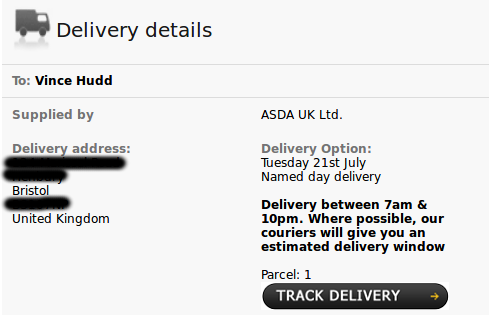Communication confusion
For some time now, the standard slogan we’ve been hearing and seeing from the government of the UK has been “Stay at home. Protect the NHS. Save Lives.”
The meaning of the first part is obvious – we’re in lockdown, so we should stay at home as much as possible, only going out when necessary. There are a number of reasons given for why it might be necessary to go out – such as shopping, exercise, going to work if you can’t stop working and can’t work from home. If you look too closely, you can see loopholes and problems, but I’m not interested in that. The point is the simple message is as clear as can be – those three words on their own are perfectly clear: Stay at home.
The second and third parts aren’t so much instructions as desired consequences of sticking to the first. If you stay at home, you’re reducing the likelihood that either you’ll get infected, or that (if you are infected) you’ll spread it to others. By reducing the spread, you’re reducing the number of potential infections, and therefore reducing the number of people that may need to be taken into hospital. You’re protecting the NHS by reducing the burden that could be put on it – and by extension, you’re reducing the number of people that could die.
Stay home.
Protect the NHS.
Save lives.
Simple. To the point.
How its presented to us in signage varies; this is one I’ve just grabbed from GOV.UK for example:

Over the last few days, there has been talk of a possible lifting of the lockdown to some degree (which may have led people to pre-empt to what degree that will be, and could itself cost lives) – and this morning I saw the new slogan, set to replace that one. This is the equivalent sign to the one above, now appearing in the press and online – and which we are therefore expecting to see when the Prime Minister, Boris Johnson, gives a press briefing this evening.

In fact, I’ve just spotted a tweet from Johnson himself that includes the slogan in the accompanying image. There are some amusing – and very apposite – versions given in the replies – my favourite being “Be vague. Cover our backs. Shirk responsibility.” But back to the new slogan itself:
Stay alert.
Control the virus.
Save lives.
What?
It seems I’m not alone when I say that I don’t consider that to be in the slightest bit clear and to the point. MP Robert Jenrick was on the Andrew Marr Show this morning, and he explained the first part thus:
“Stay alert by staying home as much as possible, but stay alert when you do go out by maintaining social distancing, washing your hands, respecting others at work.”
Robert Jenrick, on the Andrew Marr Show, 10th May, 2020.
I may need to get a new dictionary (in fact I do because mine is a tattered and torn copy of a Collins School Dictionary that I didn’t return when I left school in the mid 1980s!) but I can’t quite get how doing anything he says will enable me to ‘stay alert’. This is what said dictionary gives as the meaning of alert:

Will staying home keep me watchful or brisk? I can be brisk when I go out, of course – that means to be quick and active – but apparently we must stay alert when we go out by maintaining social distancing. If anything, I’ve found maintaining social distancing when I have to go out actually slows me down; waiting at a suitable distance in a queue outside of a shop, for example, with people only being let in gradually, as others exit – nothing brisk about that! Handwashing hardly fits the ‘watchful’ part of the definition, and as for brisk, we’re supposed to be washing them properly, and for at least twenty seconds, not quickly. And then there’s “respecting others at work” – I can’t even begin to see how that corresponds with staying alert. Does it mean I can’t take the mickey when people say or do something silly? How will that help, exactly?
So the first part of the slogan seems to be pretty meaningless. What about the second part – “Control the virus”? The bottom line is that the virus itself can’t be controlled – so that makes no sense right off the bat. What we can try to do is control or limit the way the virus spreads, and the number of people who therefore get infected.
The third part, of course, is the ultimate goal – that’s fine.
So if the new message is being introduced as part of a limited lifting of the lockdown, I think it would make more sense as:
Keep your distance.
Limit the spread.
Save lives.
A part of the problem is that the current government is made up largely of people who were involved in the campaign to leave the European Union – and coming up with slogans is about all they’re good for. And now they’ve shown they aren’t even all they’re cracked up to be when it comes to slogans.


